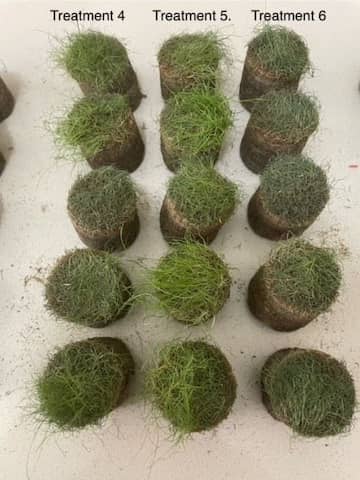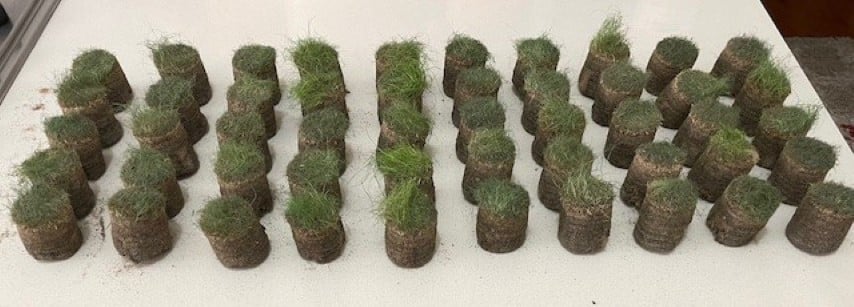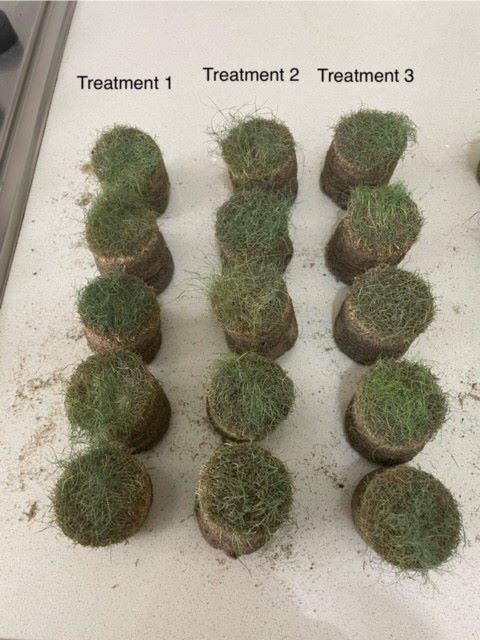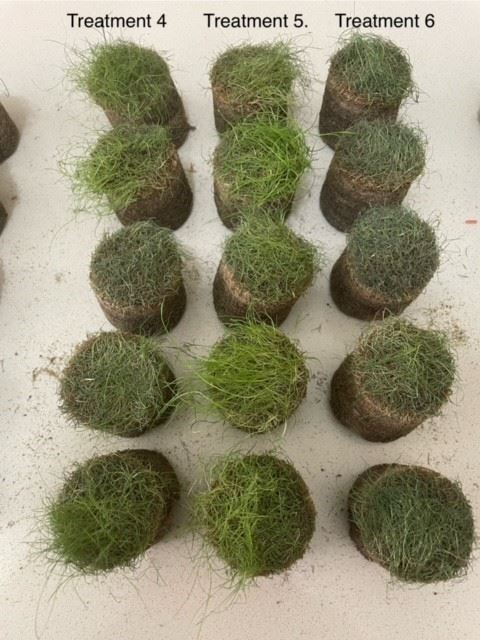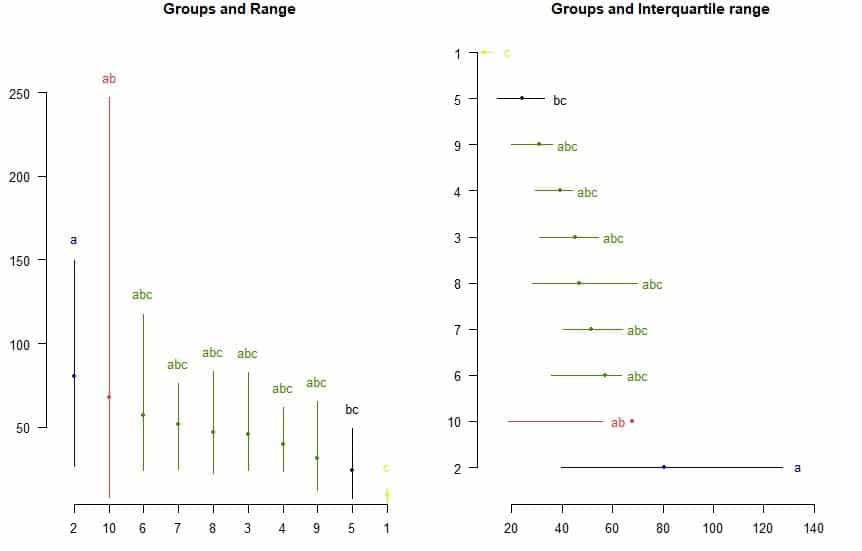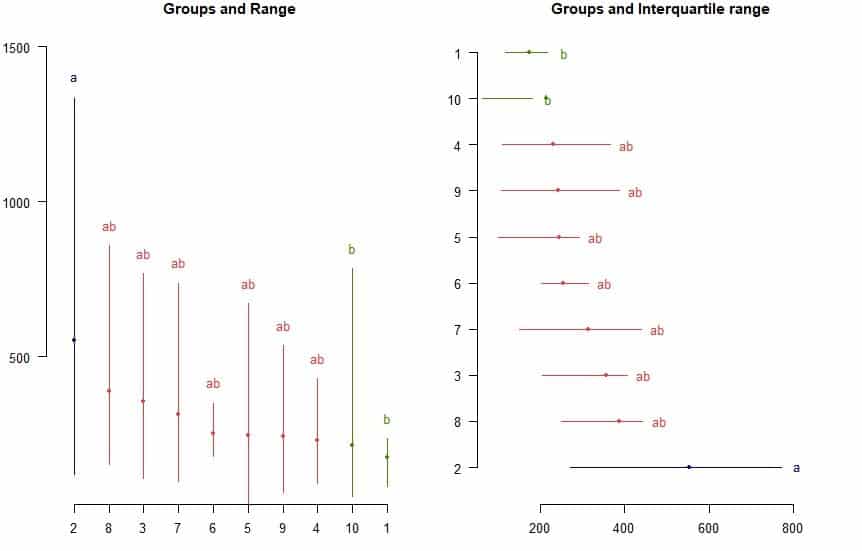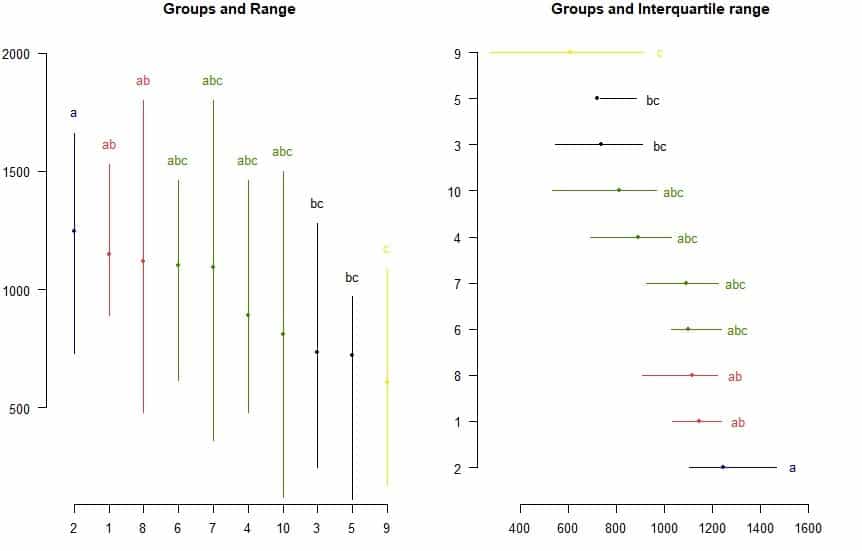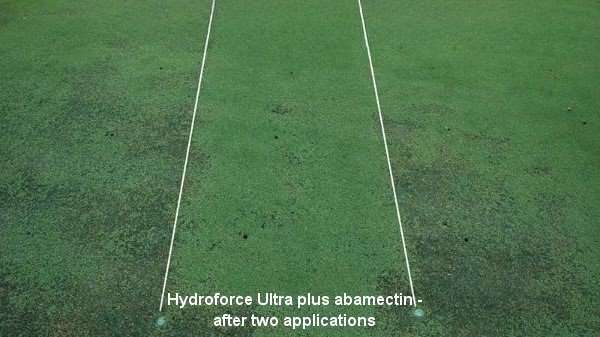As turf agronomists a common question is “what is the best wetting agent for soil and turf in Australia?” This blog discusses soil wetters and what is the best wetting agent for lawns and turfgrass but before we can answer this we need to define what exactly one is.
What are Soil Wetting Agents?
A soil-wetting agent is “A compound that causes a liquid to spread more easily across or move into the surface of a solid by reducing the surface tension.” Spray adjuvants use this principle to increase the contact of a chemical with a leaf.
Several wetting agents for lawns and sports turf claim to be the best soil wetter. These all work (to various degrees) and counter hydrophobic (water-repellant) soils.
These include:
- HydroForce Extend. This gives long term wetting for up to 3 months.
- HydroForce Inject. You can apply this via irrigation systems.
They help to increase uniform water movement through the soil profile. This means you use less water to give a more consistent surface.
Our recent 2022/2023 work on soil-wetting agents shows how these soil wetters can vary. We have also looked at the impact of soil wetters on soil organic matter.
To help with choosing the right soil wetter for your site please use our free Soil Wetting Agent Selector. If you want to know when and how much to irrigate use out Turf Irrigation Calculator.
Why use wetting agents?
There are four main reasons to use these:
- To manage localised dry spot.
- To improve water use efficiency.
- To move water away from a soil surface.
- To aid chemicals to move into the soil.
Sand-based soil profiles are difficult to manage at the best of times. However, in dry, hot conditions, ‘hot spots’ can develop that dry out much faster.
The best soil wetting agents for lawns and turf grass, help reduce the surface tension, and then help with uniform water movement into the soil.
Australian Research into Soil Wetting Agents – 2023/2024
The results below are the first year results of a long-term soil wetter study. This looks at how these perform in relation to turf health and water droplet penetration times at three depths.
This is the second-year of this soil surfactant research.
The trial is a replicated trial of 10 treatments in 6 blocks. It is on a bent green at Bonnie Doon Golf Club in Sydney, Australia.
Products we tested are:
- ICL Trismart.
- Hydrahawk.
- TT Respond.
- Tricure.
- Hydroforce Ultra.
- TT Respond.
- Penterra.
- Control.
- Proprietary product with plant health benefits.
- TT Respond.
Treatments are at label rates. Three weeks after we applied the products, plugs were taken and then air-dried for 2 weeks. this was a stress test of two weeks with no water to evaluate plant health.
Turfgrass Health.
It is all very if you get water into the soil, but this water must remain available to the plant?
We tested this visually and with a TDR 350. This measures the soil moisture after two weeks.
Only one treatment was made before drying. We then took plugs three weeks after the initial treatment. The plugs were taken too a depth of 100 mm. The images below are of the cores after being air-dried for two weeks.
All treatments apart from the Hydroforce Ultra (Treatment 5) had a 1-2% moisture content. Hydroforce Ultra still had a VMC of 6%. This may help explain the results below.
Images were taken at this stage to compare the turf grass appearance. As a guide, the control (Treatment 8) was pretty much “dead”.
I don’t think it takes a rocket scientist to see that Hydroforce Ultra outperforms all the others. Those that are treated with Hydroforce Ultra continue to grow despite the water being cut-off.
Water Droplet Penetration (WDPT).
As part of our work into the best soil wetting agent for lawns we did WDPT testing. This was at 1 cm, 2 cm and 3 cm. All the cores were highly hydrophobic after being left to air dry for two weeks. This was a pretty extreme test of how these perform.
The results of the WDPT are below.
Discussion.
There are differences in how these perform. ICL TC, Hydroforce Ultra and the proprietary blend all have excellent initial wetting to counter surface hydrophobicity due to thatch. HK and TT Respond really struggle. A possible reason for this is that they could run out of steam after three weeks.
At the 2 cm depth, differences still existed and, HK again struggled. Standout performers are ICL TC, TT Respond 1, TC, Hydroforce Ultra and the proprietary mix.
With the results at 3 cm, this is a real test for these. The soil is very hydrophobic, so this is a good measure of the ability of these soil wetters to get water down to depth.
The proprietary mix, Hydroforce Ultra and TT Respond 3, all perform well. However, ICL TC does not give that deep water penetration the others managed.
This work raises the question of plant availability of water in the soil. A soil wetter may well move water uniformly into the soil and through the rootzone, but if it isn’t available to the turf is it actually doing the best possible job?
The only one in this trial that appears to be doing this is Hydroforce Ultra.
During this trial, we will also take moisture readings at 37 and 75 mm. At its end, we did a root assessment to see how these soil wetters affect root growth.
Overseas Trials.
These are some trials on cool-season bent/Poa annua fairways. The results are relevant to what is the best wetting agent for lawns.
Hydroforce® Ultra in a trial vs Dispatch (Aquatrols) and an untreated control. Over the duration, Hydroforce Ultra performs consistently well:
- Improves and maintains turf quality.
- Increases soil volumetric moisture content (VMC %).
Hydroforce Ultra on Golf Greens.
A US study in 2021 on a mixed Poa/V8 bent green. The use rates are Hydroforce® Ultra at 13 L/Ha and Pervade® (Floratine) at 6.4 L/Ha. Results show:
- Less dry spots in comparison to Pervade or the untreated control.
- Hydroforce® Ultra gives more consistent soil moisture.
- Up to a 30% increase in root mass.
- Less need to hand water.
The video below shows Hydroforce® Ultra on a golf course fairway in the UK.
This video is from Ludlow GC in the UK. It shows how water moves away from the surface after treatment. In the UK, a similar molecule to Hydroforce Ultra is sold as Prowet Evolve.
Research into Soil Wetting Agents.
Any recommendations we make we are able to support with good science. The pdf below shows the results of a soil wetter trial we did in 2019 at Bonnie Doon G.C. in Sydney, NSW.

2019 Sydney soil wetting agent trial summary
2022/2023 Soil Wetting Agent Trial.
This is more work into the best soil wetter for turfgrass, and the best wetting agent for lawns. We look at VMC %, surface hardness and turf health.

2022/23 Sydney soil wetting agent trial summary
Turf Nematode Control.
The best soil-wetting agent for lawns and turfgrass doesn’t just manage your water better. It also has other benefits such as helping to control soil nematodes.
In this nematode control in couch grass study, treatments were:
- A mix of the nematicide abamectin, and the soil wetting agent Hydroforce® Ultra.
- Abamectin.
- Hydroforce Ultra soil wetting agent.
Results are:
- Hydroforce Ultra + abamectin provides the best control.
- Hydroforce Ultra gives better turf quality than the nematicide by itself.
Hydroforce Ultra results in better water use and more uniform distribution in the soil profile.
FAQ
Do Wetting Agents Hold Water or Help it Move into a Soil?
The first wetting agents reduced soil water repellancy, and hydrophobicity. These help water to move into the soil profile. Many are excellent for this but can cause turf damage if you do not immediately water them in.
Over time, soil-wetting agent chemistry has improved. Now soil wetting agents not only help water evenly move through the soil profile but they have plant health benefits.
The soil chemistry of any wetting agent affects how it performs. For example, in a US study of 15 wetting agents, a modified polysiloxane gave the lowest surface tension. This reduces the surface tension of water to a third of tap water!
Examples of this include Consume and Scrubwet penetrant.
Our 2023/2024 wetting agent trial is giving some interesting results. Most products appear to retain moisture in comparison to water.
Do You Need to Water in a Soil Wetting Agent?
Soil wetting agents work in the soil. This means that you do need to water them in.
The question that you should ask is do you need to water them in immediately? Ideally, you should water them in straight after application.
However, our ongoing soil wetting agent trial shows that if you apply these as per the label they are very unlikely to damage turf. To further increase turf safety, the formulation of some products increases their level of turf safety.
HydroForce Ultra uses an innovative block polymer technology that offers great turf safety. We still suggest that you irrigate after use to move the product into the root zone. However, as long as it’s not a hot day it doesn’t have to be straight away.
Are all Wetting Agents the Same?
Soil wetting agents will differ in their effects on water infiltration, retention, and their ability to reduce surface tension.
For example, recent trials show that there are big differences in their ability to retain soil moisture, their effects on surface hardness, disease incidence, and turf quality.
How Long Do Soil Wetting Agents Last?
The two main factors influence soil agent longevity are their chemistry and the environmental conditions.
Some wetter are marketed as you only need to be apply them once-a-season and claim to last up to three months. The issue with this is that you don’t know when they stop working.
This can result in periods when no wetting agent is present. If a soil wetting agent lasts a month, and you apply on a regular basis then you avoid this.
Always remember to ask for independent data to support any claims products make, rather than relying on a glossy brochure.
Why Do Some Soil Wetting Agents Burn Grass?
The make up of soil-wetting agents differs from most surfactants. Non-ionic surfactants are the basis for many of these product, and they are then mixed with poly-oxyethylene esters, or ethoxy sulphates.
If you use these at too high a rate or in too high a temperature, they can cause membrane permeability problems. This results in the death of roots and leaf tissue.
Some surfactants dissolve cuticle/wax layers on leaf blades and cause discolouration and burning if they stay on the leaf surface for too long.
Soil wetting agents like Hyroforce Ultra contain no harmful chemicals that can cause turf burn. However, if you apply any chemical when it’s blistering hot, and don’t follow the label, you are asking for trouble.
Our 2023/2024 soil wetting agent trial has found interesting results on the impact of these on turf quality. Some are perfectly safe, and others caused a temporary discolouration of the turfgrass.
Can I use Washing Up Liquid as a Wetting agent?
You can use washing up liquid as a wetting agent but we don’t recommend it. Washing-up liquid as a wetting agent :
- Only give a short-term improvement in water movement into the soil.
- In the long term it is detrimental to wildlife and the soil itself.
- Wash into drains and streams. Many household detergents contain high levels of phosphate.
- Is very phytotoxic to plants.
- Long-term detergent use destroys the soil structure, and increases salt levels.
Disclaimer
All information is provided by Gilba Solutions Pty Ltd. While we aim to keep the information up to date and correct, we make no representations or warranties of any kind, express or implied, about the completeness, accuracy, reliability, suitability or availability with respect to the website or the information.
© 2022, Gilba Solutions Pty Ltd, All rights reserved

Jerry Spencer
Jerry has an Hons Degree in Soil Science (1988) from Newcastle Upon Tyne University. He then worked as a turf agronomist for the Sports Turf Research Institute (STRI) until 1993.
He gained a Grad Dip in Business Management from UTS in 1999. He has held a number of technical roles for companies such as Arthur Yates (Commercial Technical Manager) and Paton Fertilizers (Organic, turf specialty and controlled release fertiliser) portfolios.
In 2013 he established Gilba Solutions as independent sports turf consultants and turf agronomists. Jerry has written over 100 articles and two books on a wide range of topics such as Turf Pesticides and turfgrass Nutrition which have been published in Australia and overseas.

